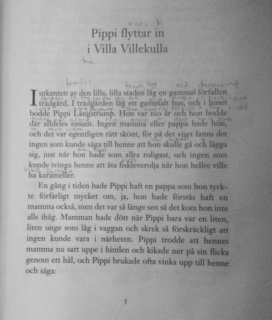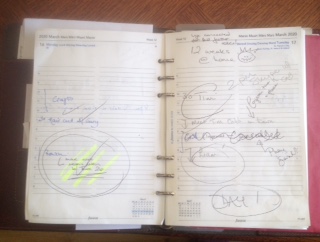A few days ago, I celebrated my birthday. It was not the usual extended festivities involving coffee dates, lunch and afternoon tea. It was not even an ‘at home’ with friends popping in and out and consuming vast quantities of tea and cake. Instead, it was something much quieter and from which I ventured no further than my front door.
Was this a disappointment or a sorry affair? Not at all. I had a joyful few days and felt incredibly spoiled and loved (just as one should on one’s birthday). It was different, certainly, but no less wonderful.
What made this birthday extra special and memorable was the incredible creativity and flexibility of friends in the face of adversity. The Blitz spirit is clearly alive and well.
Socialising from a distance
Though I seriously miss not being able to hug anyone, I haven’t missed good company. Some friends came and sat in the sunshine in my front garden; others came to the door, then stepped several yards back to chat. Those further away were in touch via video calls and my son and his girlfriend did a brilliant rendition of Happy Birthday on her new Mexican clay flute (ocarina).
This virus has, if nothing else, brought us back to the essentials. Big parties, luxurious meals and outings are wonderful – and I hope to enjoy them again soon – but they are not necessary to show that we care. All we need to do for that is to turn up: in the real or the virtual world.
Make, do and mend
Since many of my friends are themselves isolating, or at least trying to go out as little as possible, obtaining something as simple as a birthday card becomes a problem. I’m delighted to say that this hindered no-one. I received many skilful cards: some were recycled prettily, some were painted or created from craft materials at hand. All were beautiful. I couldn’t include every one in the picture below, so I’ve included an array that display an amazing breadth of ingenuity from kirigami, spoof CDs to original art works.

That’s all very well for the artistically gifted, I hear you say. But talent is an optional extra. I had one brilliant card from a college friend who wrote Happy Birthday Karen on the front and then drew a square below which read ‘Space for picture (if I had any artistic talent)’! There is the option too for colouring (adult style) as with Penny’s above or recycling an old card with a new backing. The possibilities really are endless.
Made with love
If cards were hard to come by, gifts were almost impossible. None of the usual shops were open and choices at supermarkets strictly limited. Of course, one could shop on-line to find thoughtful presents, and many did, but others went further still to make gifts that I will treasure for many years to come.

All the above required a considerable amount of skill and effort and that, in addition to their bespoke qualities, made them especially valuable to me.
We are not all, unfortunately, experts at craft, but finding perfect gifts even under lock-down is possible for everyone. We can buy local. I received some delicious honey from a friend whose neighbour is a bee keeper. We can pick some flowers from the garden or pot up some seedlings that will make a joyful display in the weeks to come. We can bake cakes or other goodies that we know our friends love. We can even venture into the amazing world of YouTube where it is possible to discover how to make absolutely anything. I’ve been making beeswax wraps with my husband recently and I hope the recipients of these enjoy them as much as we enjoyed making them.

Seeds, seedlings and young plants are always a great gift and when finances are tight, as they are for many at the moment, an affordable option. Generosity is measured not in the amount that we spend but the time/thought that we spend. At least for me!
Same again next year?
It is quite possible that some restrictions will be in place next year. We can chafe at this, or we can embrace it. Either way, we cannot control the spread of the virus nor the steps needed to contain it.
If you had explained the current situation to me a few months ago, I would have baulked at the impossibility of having any satisfactory social life under such conditions and predicted a miserable birthday. How wrong I would have been. In the true spirit of ‘making the best of things’, my friends have proven that with determination and imagination, external events need not bring us down. On the contrary, they have demonstrated that overcoming obstacles brings the sweetest victory.
































